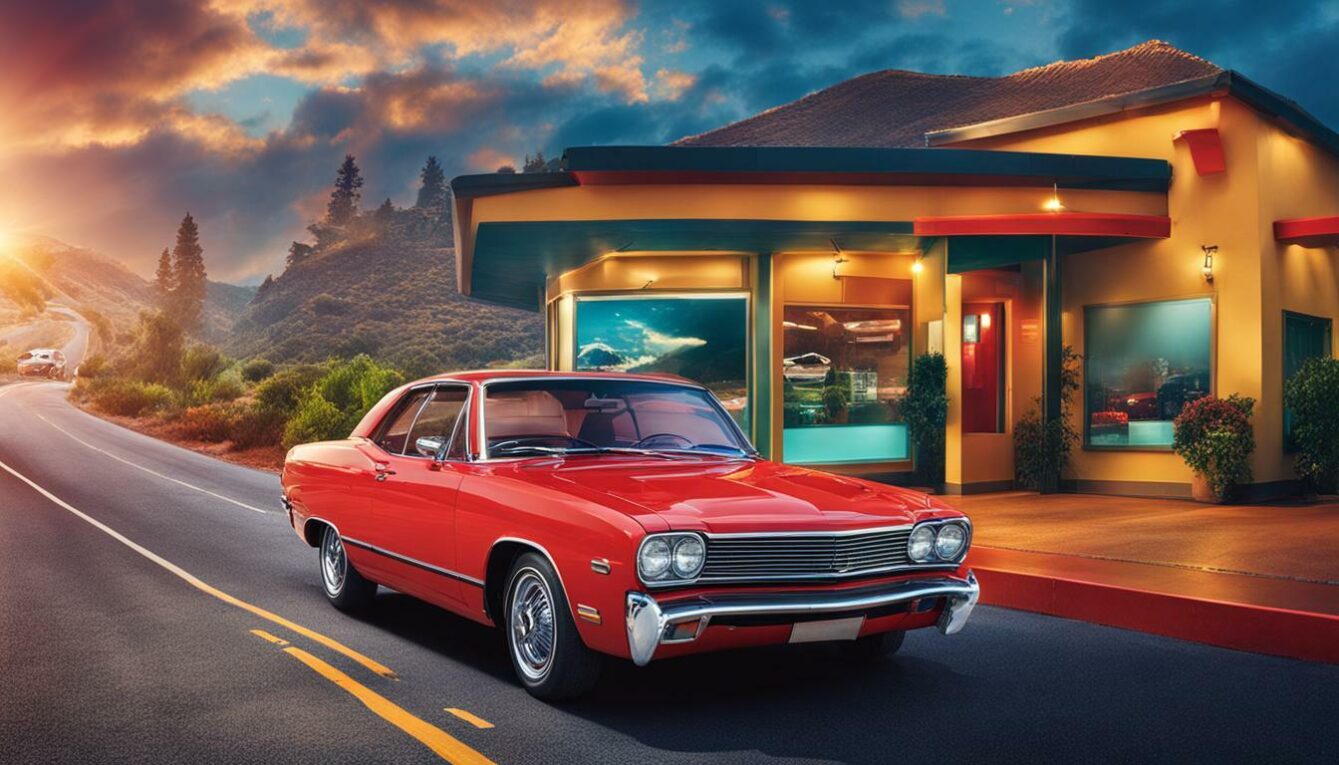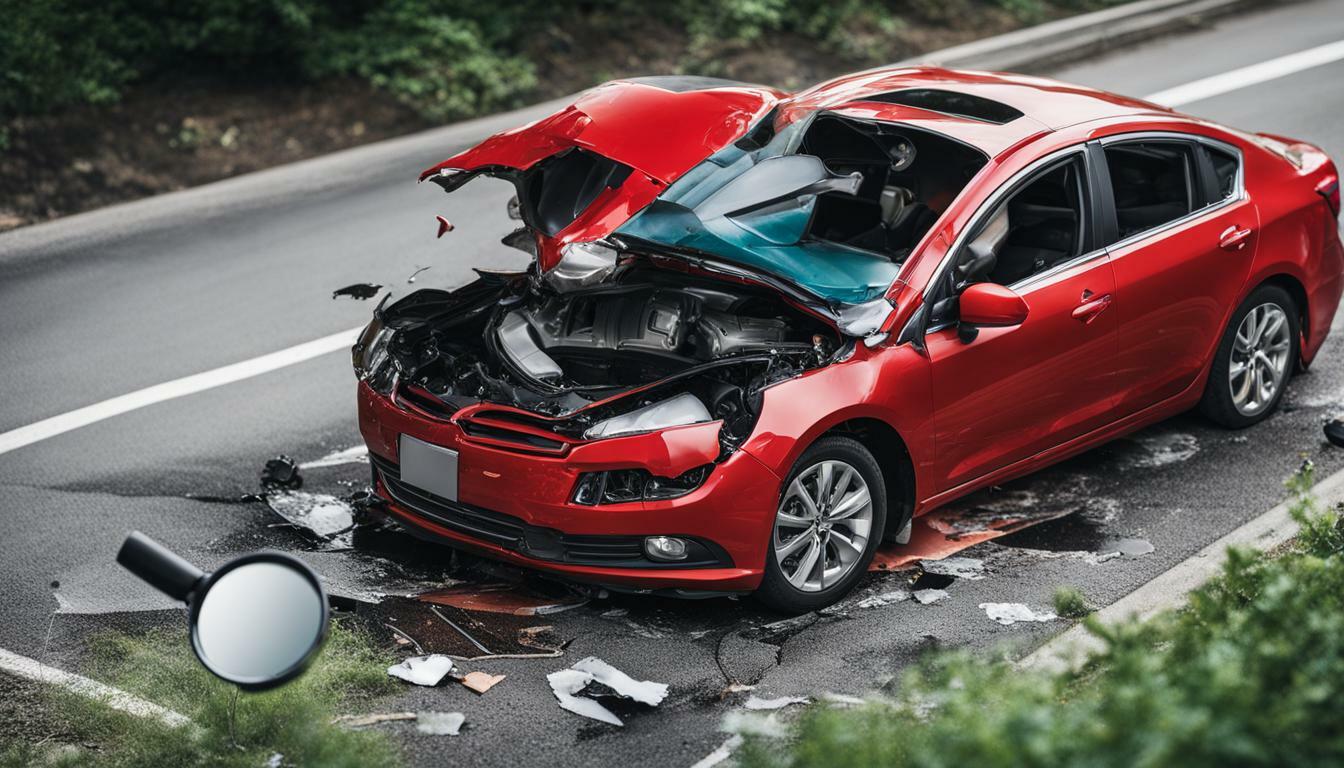Comprehensive and collision car insurance are essential coverages that protect you financially in case of accidents or damage to your vehicle. Comprehensive insurance covers non-crash damage, such as theft, fire, or weather damage, while collision insurance covers damage from accidents with other vehicles or objects. These coverages are usually bundled together with liability insurance, which is required in most states.
When considering whether you need comprehensive insurance, it’s important to assess the value of your vehicle and your ability to cover repair or replacement costs out of pocket. If you have a car loan or lease, comprehensive insurance is typically required. However, as your car ages and its value decreases, the cost-benefit of comprehensive insurance may diminish.
It’s also worth noting that comprehensive insurance does not cover injuries sustained in an accident or personal belongings inside the car. It’s important to review your policy to understand the specific coverages and limits.
The cost of comprehensive insurance can vary depending on factors such as your location, the make and model of your car, and your driving history. It is often bundled with collision coverage and other types of insurance, with the average cost of full coverage insurance being around $2,148 per year.
If you do decide to file a claim for comprehensive insurance, it’s important to be aware that it may result in a rate increase at renewal time. To ensure you’re getting the best rates, it’s recommended to compare car insurance quotes regularly.
In summary, comprehensive and collision car insurance are important coverages for protecting your vehicle from various types of damage. However, the necessity and value of these coverages may vary depending on your vehicle’s age and value. It’s important to carefully assess your situation and consider the costs and benefits before making a decision.
Key Takeaways:
- Comprehensive insurance covers non-crash damage, while collision insurance covers damage from accidents with other vehicles or objects.
- Assess the value of your vehicle and consider the costs and benefits before deciding on comprehensive insurance.
- Comprehensive insurance does not cover injuries or personal belongings inside the car.
- The cost of comprehensive insurance varies based on factors such as location, car make and model, and driving history.
- Comparing insurance quotes can help you find the best rates for comprehensive and collision coverage.
Understanding Comprehensive and Collision Coverage
Comprehensive insurance covers non-crash damage, such as theft, fire, or weather damage, while collision insurance covers damage from accidents with other vehicles or objects. These coverages are designed to provide financial protection in the event of unexpected incidents that can result in costly repairs or replacement of your vehicle.
With comprehensive insurance, you can rest easy knowing that you’re covered for a wide range of risks that can occur off the road. This includes situations like vandalism, falling objects, floods, and even animal collisions. It’s important to carefully review your policy to understand the specific covered perils and any deductibles that may apply.
Collision insurance, on the other hand, is specifically designed to cover the costs of repairing or replacing your vehicle if it is involved in an accident with another vehicle or object. Whether it’s a fender bender in a parking lot or a more serious collision on the road, collision coverage provides you with the peace of mind knowing that you won’t be left with a hefty repair bill.
When comparing comprehensive and collision car insurance, it’s important to consider your specific needs and circumstances. If you live in an area prone to extreme weather conditions or a high crime rate, comprehensive insurance may be a wise investment. On the other hand, if you frequently drive in congested areas or have a history of accidents, collision coverage can provide valuable protection.
Remember, comprehensive and collision coverage are typically bundled together with liability insurance, which is required in most states. It’s essential to review your policy details and consult with an insurance professional to ensure that you have the right level of coverage for your needs.
Factors to Consider and Cost of Coverage
The cost of comprehensive insurance can vary depending on several factors that insurance providers take into account. These factors include your location, the make and model of your car, and your driving history. To determine the cost of comprehensive insurance, insurers assess the risk of you filing a claim and set the premium accordingly.
Location plays a significant role in determining your comprehensive insurance rates. If you live in an area prone to theft, vandalism, or extreme weather conditions, the risk of damage to your vehicle increases, which can result in higher insurance costs. On the other hand, if you reside in a safe neighborhood with low crime rates and mild weather conditions, you may qualify for lower rates.
The make and model of your car also impact your comprehensive insurance rates. Insurers take into consideration the vehicle’s value, repair costs, and susceptibility to theft or accidents. Generally, newer and more expensive cars tend to have higher insurance rates, as the cost to repair or replace them is higher.
Your driving history is another important factor that insurers consider when determining your comprehensive insurance rates. If you have a history of accidents or traffic violations, insurance companies may view you as a higher risk. On the other hand, a clean driving record can often lead to lower insurance premiums.
| Location | Make and Model | Driving History |
|---|---|---|
| Higher risk areas | Newer and more expensive cars | Accidents or traffic violations |
| Lower risk areas | Older and less expensive cars | Clean driving record |
It’s worth noting that comprehensive insurance is often bundled together with collision coverage and other types of insurance. This bundling can provide additional savings and convenience. However, it’s essential to carefully review the policy details and understand the coverages and limits provided by each insurance type before making a decision.
In conclusion, the cost of comprehensive insurance is influenced by various factors, including location, car make and model, and driving history. By considering these factors and comparing quotes from different insurance providers, you can find affordable comprehensive and collision car insurance that suits your needs.
Assessing the Need for Comprehensive and Collision Coverage
When considering whether you need comprehensive insurance, it’s important to assess the value of your vehicle and your ability to cover repair or replacement costs out of pocket.
Comprehensive insurance is typically required if you have a car loan or lease, as it protects against non-crash damage like theft, fire, or weather-related incidents. However, as your vehicle ages and its value decreases, the cost-benefit of comprehensive insurance may diminish. You might find that the cost of the coverage outweighs the potential benefits.
It’s worth noting that comprehensive insurance does not cover injuries sustained in an accident or personal belongings inside the car. So if you’re primarily concerned about protecting yourself and your passengers in case of an accident, you may want to focus on other types of coverage, such as medical payments or personal injury protection.
When deciding whether to opt for comprehensive insurance, it’s crucial to review your policy and understand the specific coverages and limits. Consider consulting with an insurance agent or broker who can provide guidance tailored to your specific needs and circumstances. They can help you assess the risks you face and determine the most appropriate coverage options for your situation.
FAQ
What does comprehensive car insurance cover?
Comprehensive car insurance covers non-crash damage, such as theft, fire, or weather damage.
What does collision car insurance cover?
Collision car insurance covers damage from accidents with other vehicles or objects.
Is liability insurance required in most states?
Yes, liability insurance is typically required in most states.
When should I consider getting comprehensive insurance?
It’s important to assess the value of your vehicle and your ability to cover repair or replacement costs out of pocket. If you have a car loan or lease, comprehensive insurance is typically required.
Does comprehensive insurance cover injuries or personal belongings?
No, comprehensive insurance does not cover injuries sustained in an accident or personal belongings inside the car.
How much does comprehensive insurance cost?
The cost of comprehensive insurance can vary depending on factors such as your location, the make and model of your car, and your driving history. On average, full coverage insurance costs around $2,148 per year.
Will filing a claim for comprehensive insurance increase my rates?
Filing a claim for comprehensive insurance may result in a rate increase at renewal time, so it’s important to consider this before making a claim.
How can I find the best rates for comprehensive and collision insurance?
It’s recommended to compare car insurance quotes regularly to ensure you’re getting the best rates. You can also consider bundling comprehensive and collision coverage with other types of insurance to potentially save money.
How do I assess if I need comprehensive and collision coverage?
Assess the age and value of your vehicle, as well as your ability to cover repair or replacement costs. Review your policy details and weigh the costs and benefits before deciding on comprehensive and collision coverage.



